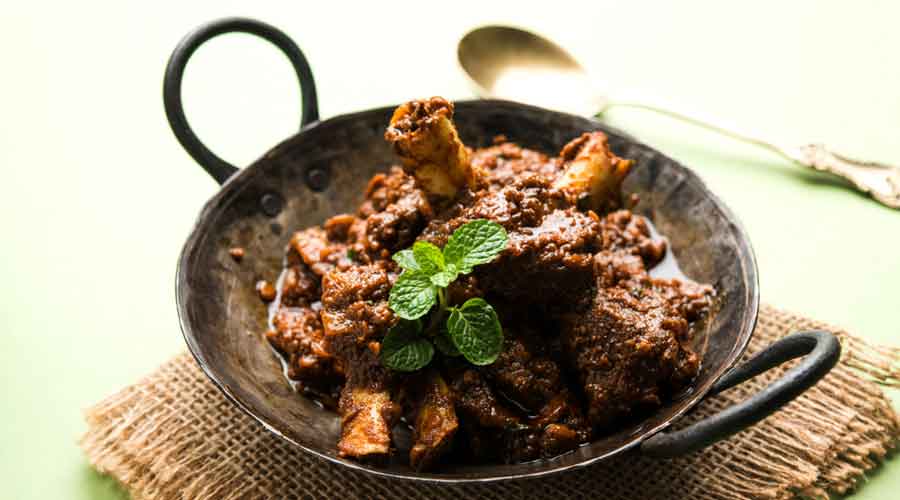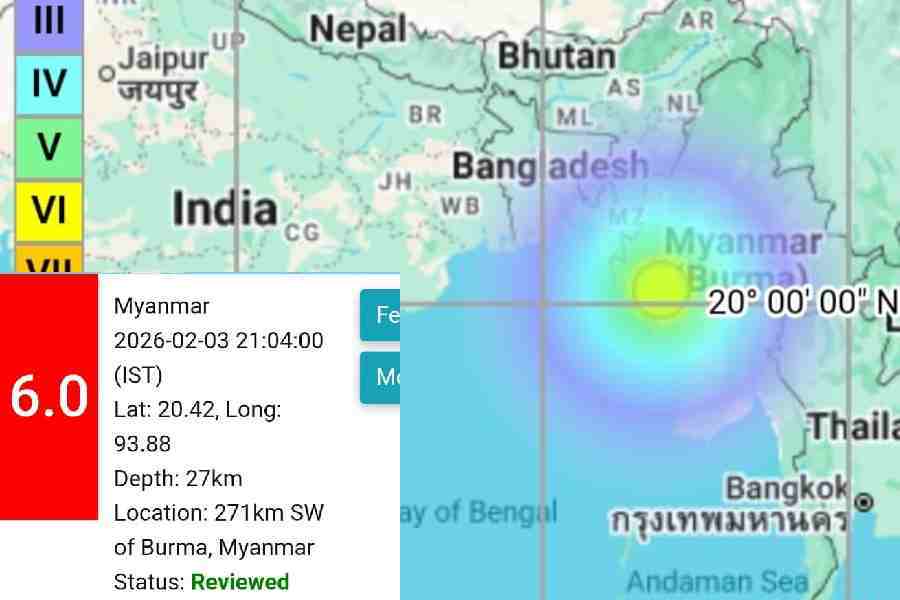Meat-loving Kashmiris can once again tuck into their favourite mutton dishes, which are making a comeback to the menu after a months-long deadlock between the government and the sellers over price that had fuelled concerns that it could be a ploy to impose vegetarianism on the Valley.
Kashmir had been facing an acute mutton shortage after the government unilaterally fixed the rate in November at Rs 480 per kg without offal, Rs 70 to Rs 120 less than what meat sellers had been charging.
The sellers shut their shops and a series of negotiations with the government failed to resolve the impasse. The breakthrough came on Thursday with the government agreeing to raise the price.
As the shops had remained shut, many dealers had been selling meat secretly at exorbitant rates but the delicacy had remained out of reach for most people all these months.
Kashmiris are voracious meat eaters. Around 22 lakh sheep are slaughtered annually in Kashmir, the bulk of which — 15.5 lakh — come from outside. Meat sellers had said they had lost hundreds of crores because of the deadlock.
The government has now fixed the prices at Rs 535 per kg without offal and Rs 490 with offal. Subsequently, many meat shops reopened across the Valley on Friday but many more remained shut because of a dearth of livestock.
Official sources said the government was keen to project a “people-friendly” image as many Kashmiris are fond of meat and were angry over the exorbitant prices of their favourite dish.
But the move, coming amidst heightened fears that Delhi was hell bent on changing the Muslim-majority character of Jammu and Kashmir, has not completely alleviated the concerns.
“Such fears were there because their (the government’s) sincerity is doubtful…. There is no question that it (imposing vegetarianism) can happen,” Grand Mufti Nasir-ul-Islam told The Telegraph.
The Mufti said the fact that the administration could not solve the impasse for months also pointed to the absence of governance in Kashmir. “If there was such an issue, why was the civil society not involved?” he asked.
In January, BJP-friendly film director Vivek Agnihotri, who was in the Valley to shoot a film on Kashmiri Pandits, had stirred a row when he introduced Twitterverse to what he called “vegetarian wazwan”, with an apparent threat to change Kashmiris’ food habits. For many Kashmiris, “vegetarian wazwan” sounded like a “cultural invasion”.
Wazwan, a multi-course spread, is all about meat, so much so that the vegetable dishes that are part of it are immersed in mutton gravy before being served to guests. In Kashmir, people from all faiths — Muslims, Pandits and Sikhs — relish the wazwan.
Agnihotri had posted pictures showing his team eating vegetarian dishes at a Srinagar hotel.
“Nobody knows how to make a vegetarian wazwan in Kashmir. But I am here to bring about change,” wrote Agnihotri, whose upcoming film The Kashmir Files is based on the “unreported story of the most tragic and gut-wrenching genocide of Kashmiri Hindus”. Khazir Muhammad Regoo, the president of the Retail Mutton Dealers’ Association, said they had agreed to the new rates, although he regretted that the government’s “stubbornness” had dragged the issue on for months.
“The Valley consumes meat worth around Rs 4 crore to Rs 5 crore per day. Some people had been buying meat in the black market but the daily inflow of sheep from outside had reduced by around 90 per cent,” Regoo said.
He said wholesale dealers were averse to selling meat to retailers and had been directly selling to consumers at their godowns, the reason many shops remained shut on Friday.
A wholesaler, however, said they were running short of supplies due to the stalemate and it would take a few days for things to return to normal. Earlier, the government and the mutton dealers had set up committees that surveyed markets outside Kashmir to ascertain the latter’s claims that they were having to buy meat at exorbitant prices from outstation dealers.
The government on Friday sealed some shops that were allegedly selling meat at higher rates.
The director of food and civil supplies, Bashir Ahmad Khan, warned of action against violations such as deviation from the government rate list, weight fraud and poor quality. The actions would include “lodging of FIR and sealing of their shops as and when required”, Khan said in a statement.










